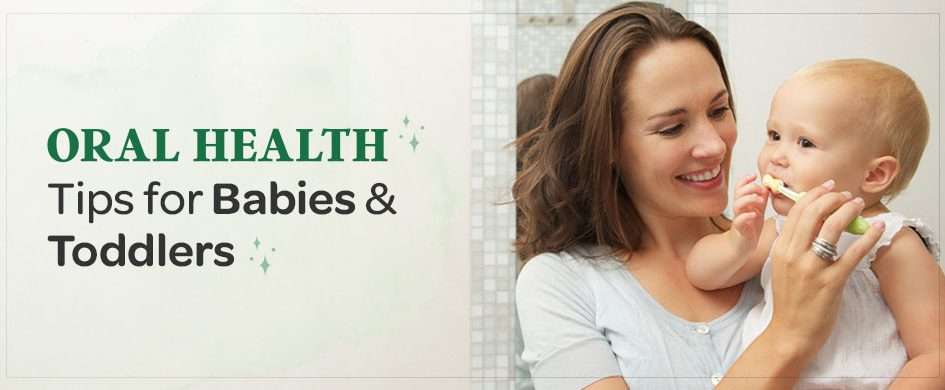
How to Care for Babies and Toddlers Dental Hygiene
- by Baby Organo
- 1 min 23 sec
Table of Contents
Introduction to Infant Oral Hygiene
Oral hygiene is the most significant part of our overall health. Just as adults, even infants require dental care right from the beginning. Many dental problems may occur if one fails to take proper care of a baby's oral hygiene. Therefore, to prevent common dental issues in kids, it is recommended to take the required steps at an early age.
When Should Dental Care for Babies Begin?
It is vital to create an oral health routine for children, but numerous parents are perplexed about when to begin with, dental care for babies. And that's why below are the details to solve their dilemma.
Oral Health Tips for Babies and Toddlers
Oral Hygiene: 0 to 6 Months of Age
Infants rely on breastfeeding, especially for a few months. Hence, ensure to clean your baby's gums after breastfeeding or bottle feeding. Take a moistened and soft washcloth and gently wipe your infant's gums. Precisely repeat the same after feeding and prior to bedtime. Do not use your mouth to check the bottle's temperature as there are chances of transmissible dental decay diseases. Moreover, avoid sharing utensils with the baby as they can transmit bacteria, leading to cavities.
Oral Hygiene: 6 to 12 Months of Age
These are the months when you can notice your baby's first tooth popping out. Try to replace the bottle with a cup to drink as a year-old toddler should drink from a cup instead of the feeding bottle. Do not provide an abundance of sweetened drinks or fruit juices to toddlers as it contains acids that can damage the teeth or cause tooth decay. Also, introduce more solids into your baby's diet. Use a finger brush to clean the child's teeth twice a day gently.
Oral Hygiene: 12 to 18 Months of Age
This is the age when many teeth are visible in your toddler's mouth. The newly erupted baby teeth require utmost care. You can introduce a toothbrush to your kid's dental care routine by age one. Pick a soft-bristled toothbrush for the toddler; wet the brush and softly your child's teeth. As the child has started eating solids, make it a habit to brush their teeth twice a day to avoid cavities and other dental problems.
Oral Hygiene: 18 Months to 5 Years of Age
Between 2 to 3 years of age, a baby's teething process ends, and the final molars pop out. Now, by the age of 2 to 5, ensure teaching your kid how to brush their teeth. Always assist your child at the time of brushing, as it takes time for them to have hand movement when it comes to cleaning their teeth. Additionally, you can have a small amount of suitable toothpaste and instruct the kid to spit it out. It is advisable to choose Herbal kids toothpaste for toddlers' better and safer brushing experience.
Final Tips and Dental Checkup Routine
Frequently check your baby's mouth and lips. The moment you notice any suspicious spots on the teeth, visit your doctor immediately. Furthermore, make it a habit to have your child's dental examination at least twice a year. Teething can be an arduous process for every kid and parent; therefore, provide your child a chewable object or rub your clean fingers on the gums as it will ease them.


